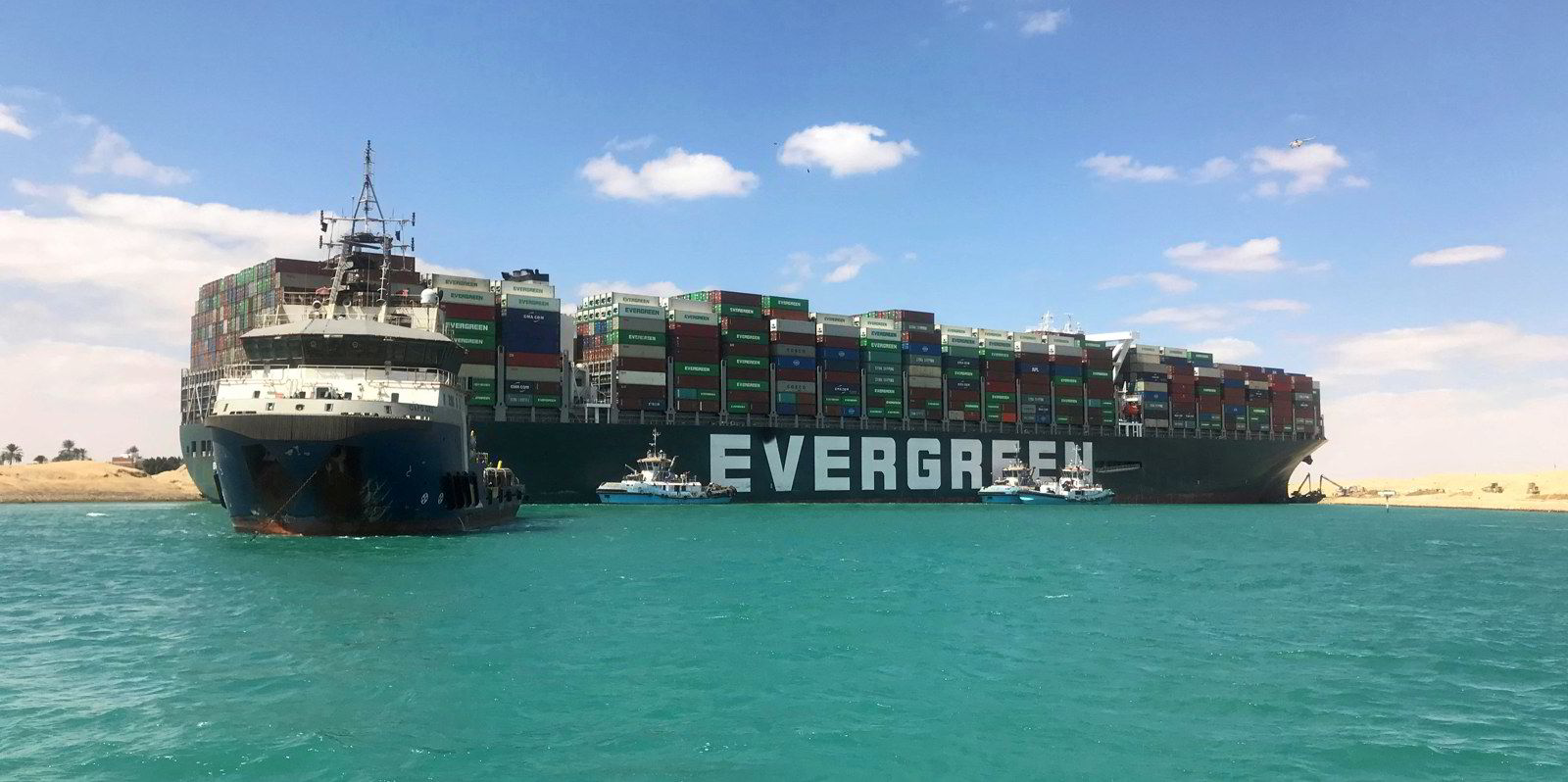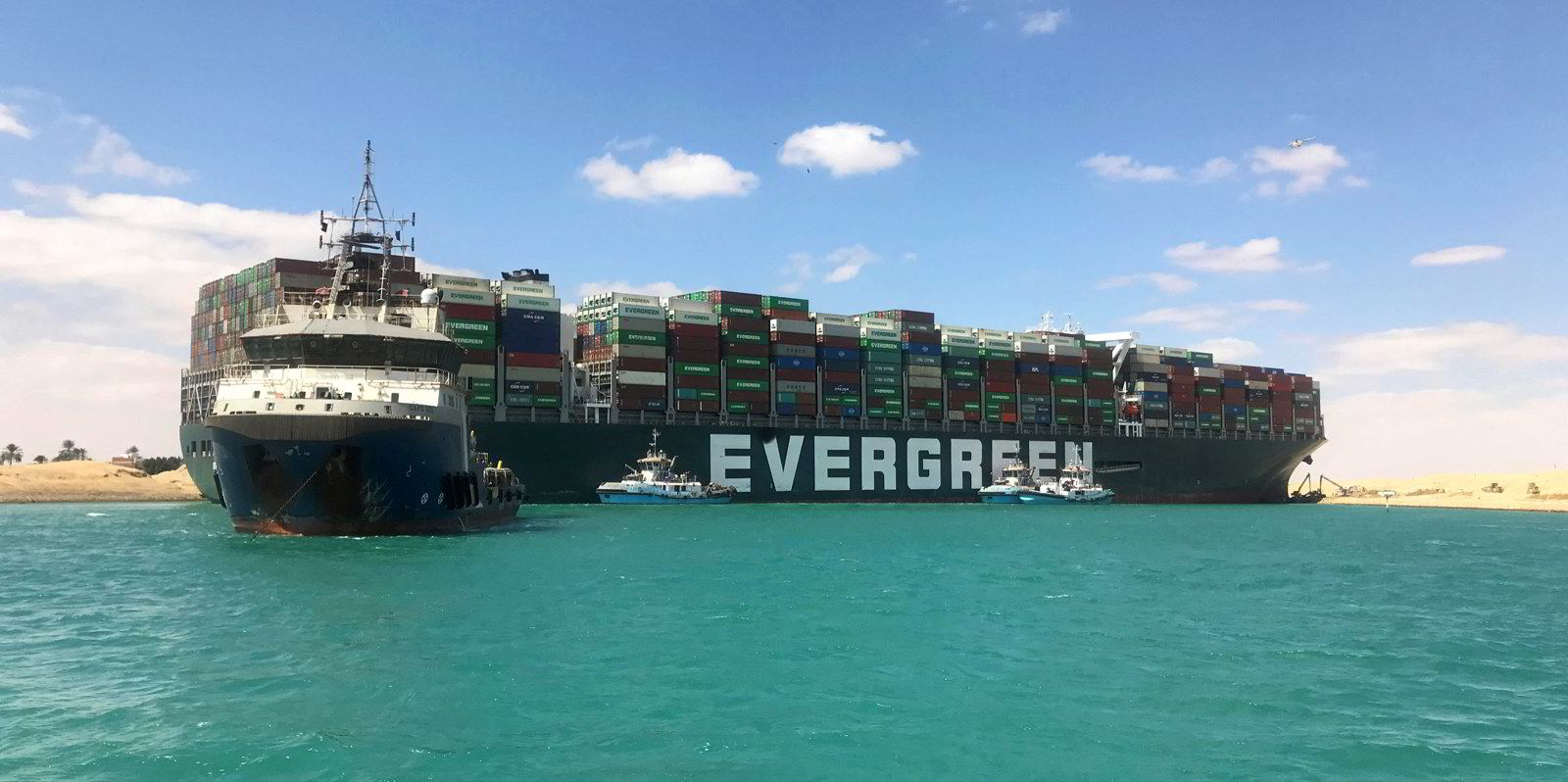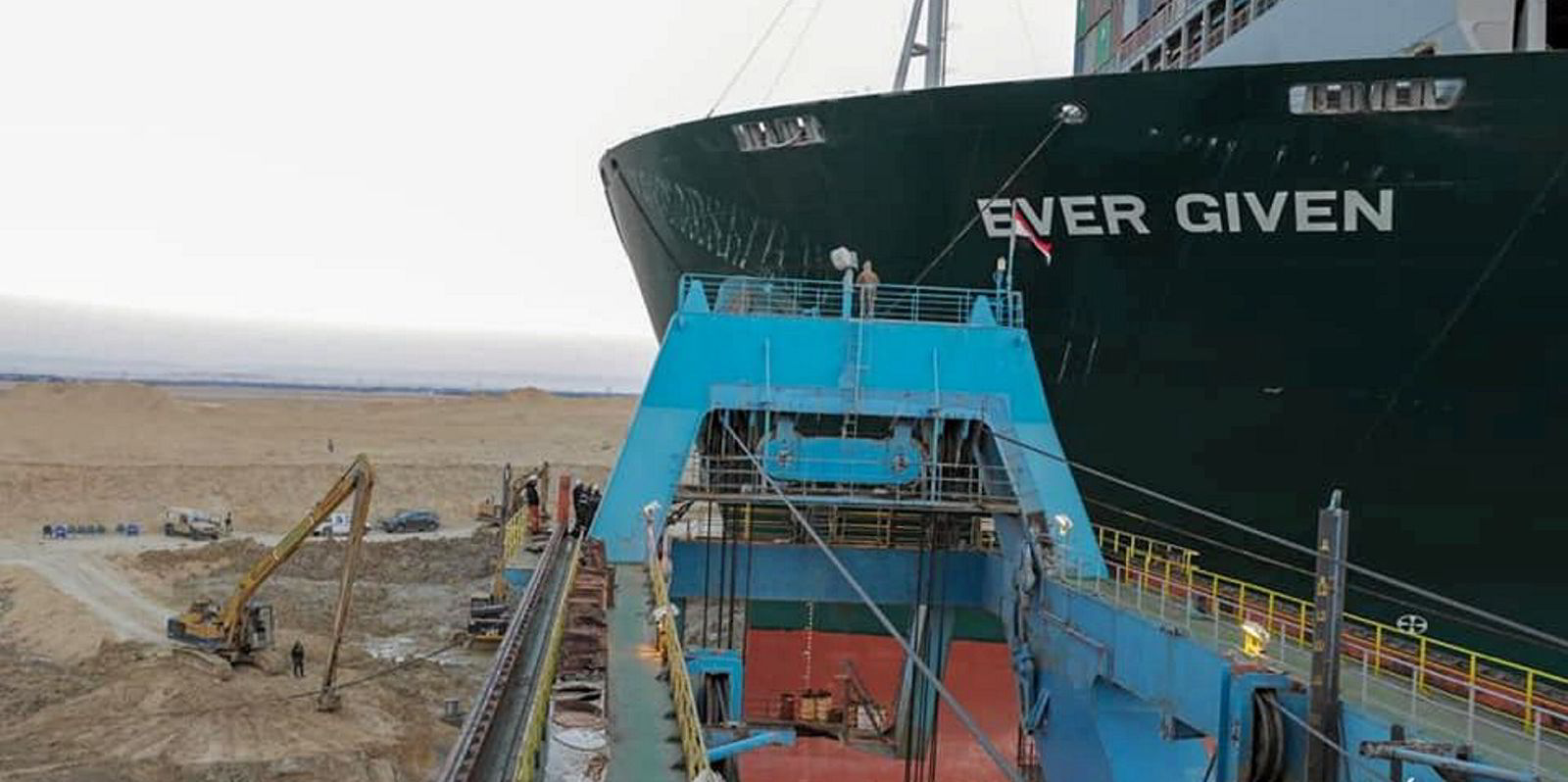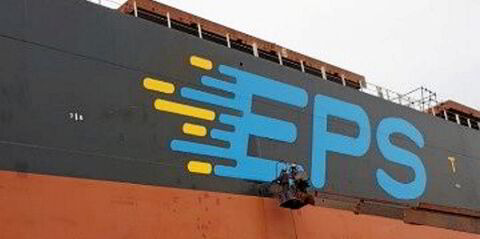A UK high court judge has ruled that Dutch salvage company Smit was not bound by a pre-agreed salvage contract when it assisted in refloating the Ever Given from the Suez Canal in 2021.
The ruling now opens the door for Smit to make a common law claim for its salvage services to the 20,388-teu Ever Given (built 2018) under the 1989 International Convention on Salvage.
The Ever Given grounded on 23 March 2021, blocking the canal for six days, in a saga which became frontpage news around the world.
The case hinged on whether a 26 March 2021 email exchange between claimant Smit and the defendant — Japanese owner of the Ever Given, Luster Maritime and Higaki Sangyo — represented a binding salvage contract between the parties.
Through the exchange, both sides agreed Smit would be paid based on SCOPIC rates with a refloatation bonus of 35% of the gross invoice value, and a 15% uplift on out-of-pocket expenses.
Justice Andrew Baker ruled that while the exchange was the basis of an agreement over the outline of the terms, it did not go as far as representing a commitment by both parties to be contractually bound.
“The references in those exchanges to agreement of, or mobilisation based on, remuneration terms of SCOPIC rates (plus 15% uplift on out of pockets), do not, in my view, convey unambiguously an intention to be bound there and then,” Justice Baker said in the ruling.
Subsequent correspondence between the parties made it clear that there were still some outstanding points, including Smit’s stated position that it wanted to finalise the agreed terms based on a 2010 Wreckhire contract.
However, the defendants had argued that there could be implications for the salvage industry over how emergency response salvage services are contracted if Smit were to be allowed to make a claim based on common law.
To make a common law claim under the Salvage Convention, the salvage company usually volunteers its services to the owner rather than enter into a contract.
Stann Marine lawyer Faz Peermohamed, who represented the Japanese owners, wrote to Smit’s legal representatives at law firm HFW over his concerns shortly after the Ever Given’s refloating on 31 March.
The correspondence was attached to the judge’s final ruling.
“It would set a precedent that a salvor could agree preliminary terms with a shipowner and commence the provision of services on the basis of those terms, deliberately delay the finalisation of a commercial contract until the services had been completed and then make a common law salvage claim on the basis that no contract had been agreed. That cannot be correct, either legally or practically,” Peermohamed wrote.





